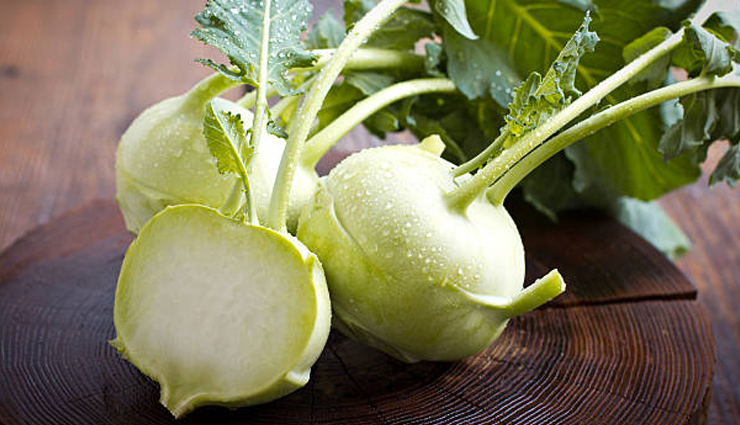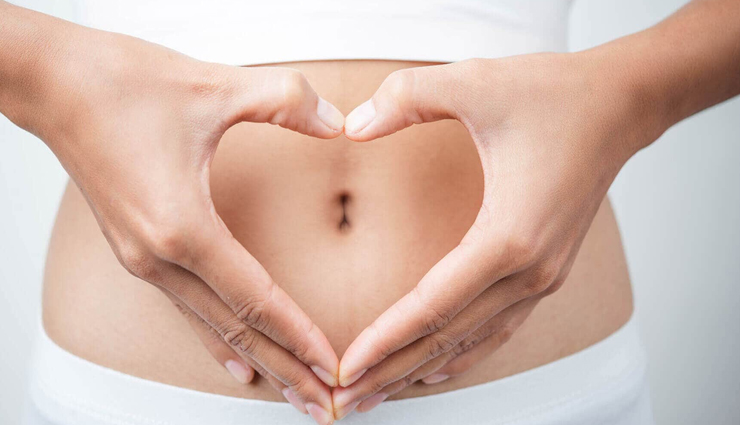- Home›
- Healthy Living›
- 7 Amazing Health Benefits Of Consuming Kohlrabi
7 Amazing Health Benefits Of Consuming Kohlrabi
By: Kratika Sun, 12 Feb 2023 5:52:27

Kohlrabi is a low glycemic index food. As a result, it can help improve satiety and glycemic control. As part of a healthy diet, kohlrabi can help improve overall metabolism and aid with weight loss. Because kohlrabi is high in calcium and magnesium, it contributes to stronger bones.
Kohlrabi is so highly-valued in countries and cuisines around the world not only for its diversity in cooking applications but also because it might be full of nutrients and minerals.
According to USDA National Nutrient Base, kohlrabi consists of calcium, potassium, magnesium, iron, and calcium, as well as vitamins C, B-complex, A, and K. Along with that, it is also high in dietary fiber and antioxidant compounds such as phytochemicals and various carotenes

May Improve Digestion
Just like most cruciferous vegetables, kohlrabi may be a good source of dietary fiber that can seriously improve digestive health. Fiber helps to move your bowels, reducing constipation, cramping and bloating, and generally improving the quality of your gastrointestinal system, while also maximizing your nutrient uptake efficiency.

Boost Energy Level
Kohlrabi may be rich in potassium, and although this characteristic of potassium isn’t discussed too often, it is one of the key players in muscle and nerve behavior in the body. It helps us move, breathe, react, and function every single day. As such, adequate amounts of this mineral–and the high potassium content, as mentioned, in this vegetable may make it a great addition to your diet to keep you alert, energetic, and in great shape!

Strengthens Bone Density
Because kohlrabi is high in calcium and magnesium, it contributes to stronger bones. In addition to other calcium-rich food sources and weight-bearing exercise, kohlrabi can be part of strengthening bone density.

Promotes Heart Heath
The water-soluble fiber in Kohlrabi helps reduce blood glucose (blood sugar) and cholesterol levels. Lower cholesterol levels are associated with a decreased risk of heart disease and stroke.
The fiber in kohlrabi also fuels Bifidobacteria and Lactobacilli. These two types of bacteria make important fatty acids that protect against obesity and heart diseases

Supports Gastrointestinal Health
Kohlrabi is rich in both soluble and insoluble (doesn’t dissolve in water) fiber. Insoluble fiber can’t be broken down by your digestive system, speeding up the movement of food through your stomach and intestine. It also adds bulk to your stool. Insoluble fiber promotes regular bowel movements and supports a healthy gastrointestinal system.

Prevent Anemia
Apart from potassium, Kohlrabi may also consist of iron. The significant levels of iron found in kohlrabi go hand-in-hand with the potassium content; iron helps to increase the red blood cells (RBC) in the body, which are essential to prevent anemia (iron deficiency). This deficiency is characterized by weakness, fatigue, headaches, stomach disorders, disorientation, and general immune system failure. The calcium found in kohlrabi may also help improve the uptake of iron by the body, so kohlrabi is an all-round booster for both the immune and cardiovascular systems.

Aid In Weight Loss
In a report published in the Journal Integrative Medicine, researchers called kohlrabi the perfect vegetable for a weight loss diet. Why? It may be low in calories, high in fiber, and packed with beneficial nutrients. Fiber makes us feel full, so even if the volume of food consumed isn’t that great, we are more likely to snack between meals or overeat.





